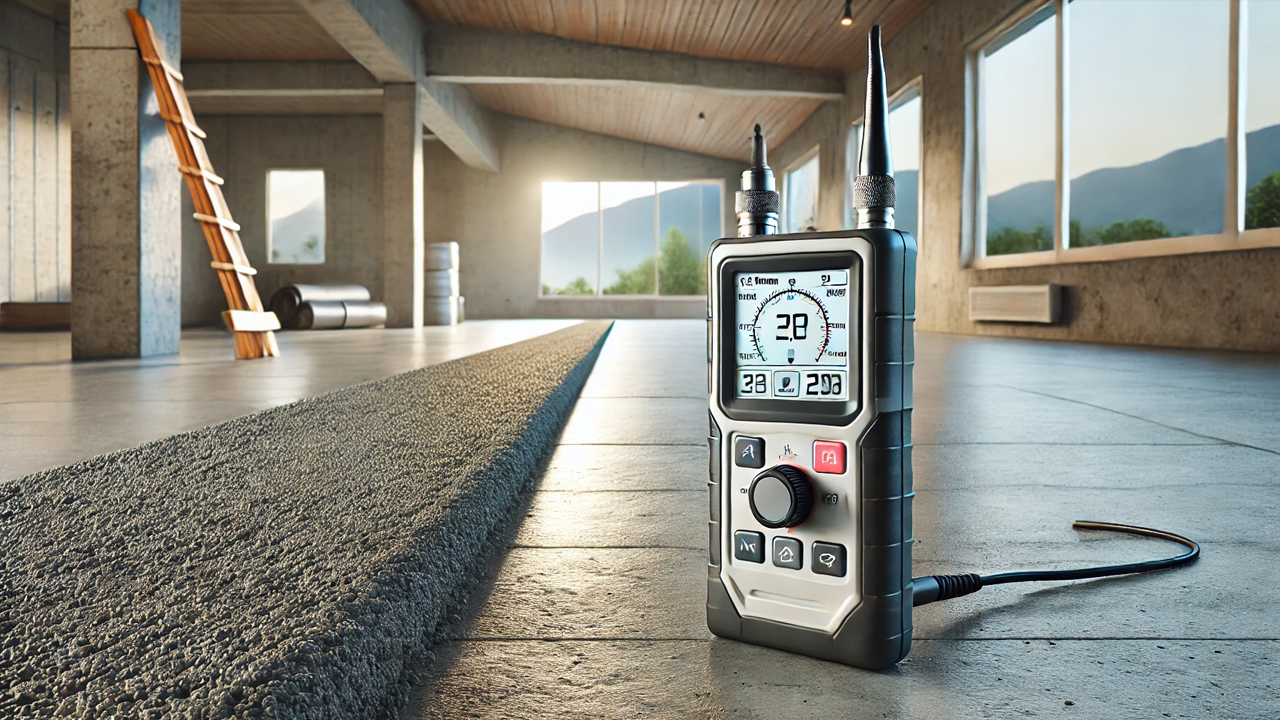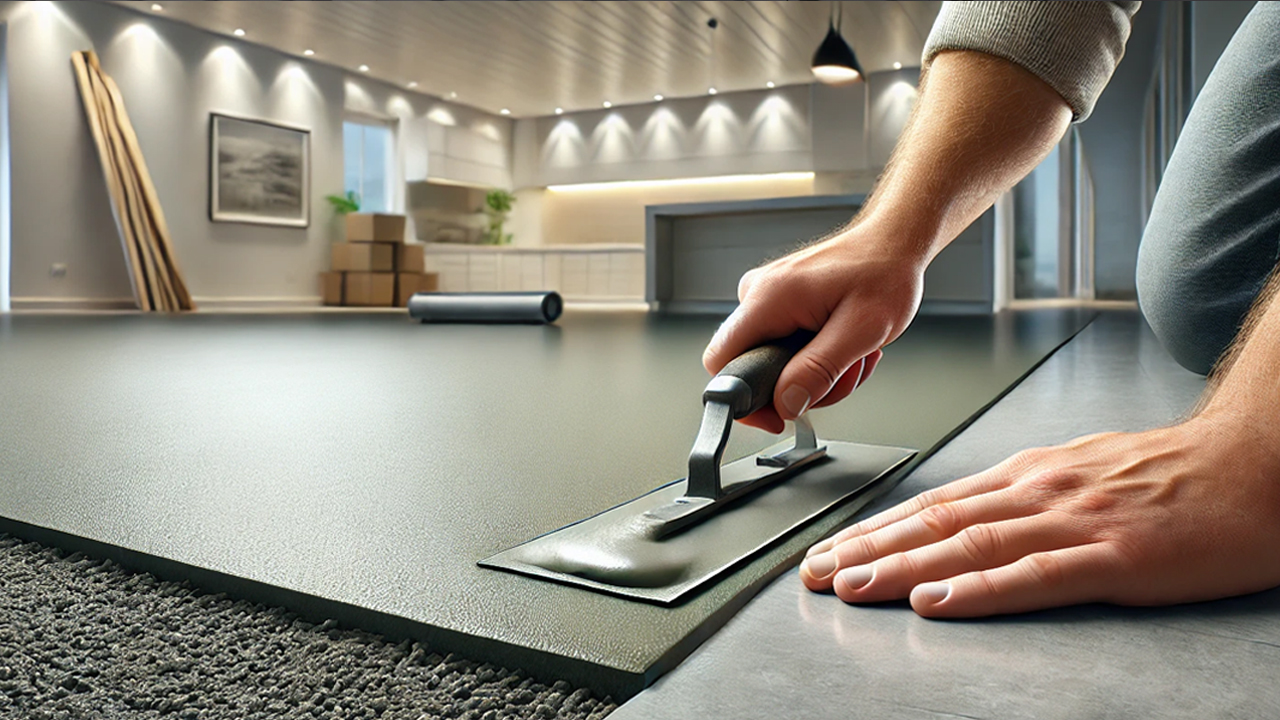
The Crucial Role of Moisture Control in Self-Leveling and Screed for Vinyl Flooring Installation
When it comes to installing vinyl flooring, achieving a flawless and long-lasting result depends on more than just selecting high-quality materials. One of the most critical factors in the process is moisture control during the self-leveling and screed application. At Azeemah Floors, we understand that managing moisture levels in these foundational layers is essential to ensure the durability and performance of vinyl flooring, especially in the unique climate conditions of Dubai and the UAE. In this blog post, we’ll explore why moisture control during self-leveling and screed is so important and how proper testing, including the use of moisture test machines, can safeguard your flooring investment.
Why Moisture Control Matters in Self-Leveling and Screed
Prevents Bond Failure: Vinyl flooring is typically adhered to the subfloor using specialized adhesives, which rely on the stability of the self-leveling and screed layers. Excess moisture in these layers can weaken the bond between the vinyl and the subfloor, leading to issues such as delamination, lifting, or bubbling. These problems can significantly shorten the lifespan of your flooring, resulting in costly repairs or even complete replacement. Moisture control ensures that these layers are properly cured, providing a secure and long-lasting installation.
Avoids Mold and Mildew Growth: Moist environments within the self-leveling or screed layers can become a breeding ground for mold and mildew, which can grow beneath vinyl flooring if moisture levels are not properly managed. Mold and mildew not only compromise the integrity of the flooring but also pose serious health risks to occupants. Ensuring that moisture levels are within acceptable limits prevents these harmful organisms from taking root beneath your vinyl floor.
Ensures Proper Curing of Self-Leveling Compounds and Screed: Both self-leveling compounds and screed used in vinyl flooring installation require specific moisture conditions to cure correctly. If these layers are too damp, they may not cure as intended, leading to an unstable surface that can cause the vinyl flooring to shift, buckle, or fail over time. Proper moisture control is crucial to allow these materials to perform as expected.
Prevents Discoloration and Warping: Vinyl flooring is sensitive to moisture, and high moisture levels in the self-leveling or screed layers can cause discoloration or warping of the material. This not only affects the aesthetic appeal of the flooring but also its structural integrity. By controlling moisture, you can maintain the pristine appearance of your vinyl flooring for years to come.
Moisture Testing: The First Step to Success
Before installing vinyl flooring, it is essential to conduct thorough moisture testing of the self-leveling and screed layers. At Azeemah Floors, we use advanced moisture test machines to assess moisture levels and ensure that these foundational layers are ready for vinyl flooring. This step helps identify any potential issues that need to be addressed before proceeding with the installation.
Moisture Test Machine: We employ state-of-the-art moisture test machines that provide precise readings of moisture content within the self-leveling and screed layers. These machines help us determine whether the moisture levels are within acceptable limits for the installation of vinyl flooring, ensuring a successful outcome.
Calcium Chloride Test: In some cases, we may use the calcium chloride test, which measures the moisture vapor emission rate from the self-leveling or screed over a 24-hour period. This test complements the data obtained from the moisture test machine, providing a comprehensive understanding of the subfloor's condition.
Relative Humidity Test: This test measures the relative humidity within the self-leveling or screed itself, often using probes inserted into drilled holes. It offers insight into the internal moisture levels, which is critical for ensuring the long-term stability of the vinyl flooring.
Moisture Mitigation Strategies
If moisture testing reveals that the self-leveling or screed layers have moisture levels that are too high, there are several moisture mitigation strategies that can be employed to prepare these layers for vinyl flooring:
Moisture Barriers: Installing a moisture barrier can prevent moisture from migrating into the self-leveling or screed layers. These barriers are often used in areas with high humidity or where moisture is a known issue.
Dehumidification: Using dehumidifiers can help reduce the moisture levels in the self-leveling or screed layers and the surrounding environment. This is especially important in humid climates like Dubai and the UAE.
Moisture-Resistant Adhesives: In some cases, using moisture-resistant adhesives can provide an additional layer of protection against moisture-related issues. These adhesives are specially formulated to maintain their bonding strength even in the presence of higher moisture levels.
Conclusion: Protecting Your Vinyl Flooring Investment
At Azeemah Floors, we believe that moisture control during the self-leveling and screed process is a critical component of any successful vinyl flooring installation. By carefully managing moisture levels and conducting thorough testing with our moisture test machines, we ensure that your flooring not only looks great but also performs well over time. Whether you’re installing vinyl flooring in a commercial space, residential property, or any other setting in Dubai or the UAE, proper moisture control will protect your investment and deliver lasting results.
If you're planning a vinyl flooring project, contact us today to learn more about our moisture testing and mitigation services. Let Azeemah Floors help you achieve a flawless installation that stands the test of time.


.jpg)